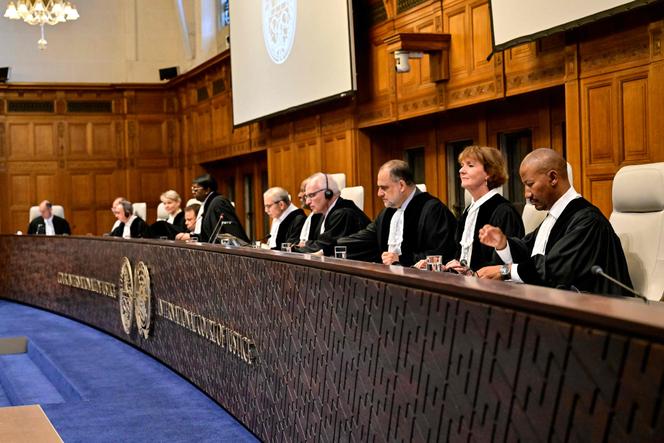


The top United Nations court ordered Israel on Friday, May 24, to halt military operations in Rafah, a landmark ruling likely to increase mounting international pressure on Israel more than seven months into the Gaza war. Israel must "immediately halt its military offensive, and any other action in the Rafah Governorate, which may inflict on the Palestinian group in Gaza conditions of life that could bring about its physical destruction in whole or in part," the International Court of Justice said.
Israel must "maintain open the Rafah crossing for unhindered provision at scale of urgently needed basic services and humanitarian assistance," the ICJ also said in its ruling.
South Africa had urged the ICJ to order an "immediate" stop to Israel's campaign, including in the southern area of Rafah, and facilitate access of humanitarian aid. South Africa brought the case before the ICJ last year alleging that Israel's Gaza offensive breached the 1948 UN Genocide Convention – a charge strongly denied by Israel. In a ruling on January 26, the ICJ ordered Israel to do everything it could to prevent acts of genocide during its military operation in Gaza.
But South Africa has since returned several times to the ICJ arguing that the dire humanitarian situation in Gaza compels the court to issue further fresh emergency measures. The court did so in March, ordering new measures compelling Israel to ensure the "unhindered provision at scale" of humanitarian aid.
Israel wanted the court to toss out the request, arguing an enforced halt to the campaign would allow Hamas fighters to regroup and make it impossible to recover hostages taken in their October 7 assault.
The ICJ rules in disputes between countries. Its orders are legally binding but it has no means to enforce them directly. The court has, for example, ordered Russia to halt its invasion of Ukraine to no avail.
In public hearings last week, South Africa's ambassador Vusimuzi Madonsela alleged that "Israel's genocide has continued apace and has just reached a new and horrific stage." He said that "although the present application was triggered by the unfolding situation in Rafah, Israel's genocidal onslaught across Gaza has intensified over the past few days, also warranting the attention of this court." South Africa argued the only way to enable humanitarian aid in to ease the crisis in Gaza was a full halt to Israel's military operations.
The court will take months if not years to rule on the broader South African genocide case but it can order urgent measures while weighing its decision.
Israel retorted that South Africa's case was an "obscene exploitation of the most sacred convention" and the picture Pretoria paints to the court was "completely divorced from the facts and circumstances." Israel's lawyer Gilad Noam said "it makes a mockery of the heinous charge of genocide." Israel also said it was "acutely aware" of the suffering of civilians in the Gaza Strip and that it has made "extensive efforts" to increase humanitarian aid flowing.
The ICJ's ruling comes hot on the heels of a landmark request by the International Criminal Court's lead prosecutor to seek arrest warrants for top Israeli and Hamas leaders. Prosecutor Karim Khan alleges that senior Israeli leaders, including Prime Minister Benjamin Netanyahu, plus top Hamas officials, are guilty of war crimes and crimes against humanity related to the October 7 attack and the war in Gaza.
Israel has pressed ahead with the assault on Rafah, the last city in Gaza to be entered by its ground troops, in defiance of global opposition, including from top ally the United States. Washington voiced concerns that about 1.4 million Palestinians trapped in the city would be caught in the line of fire. Israel has since ordered mass evacuations from the city, and the UN says more than 800,000 people have fled.
